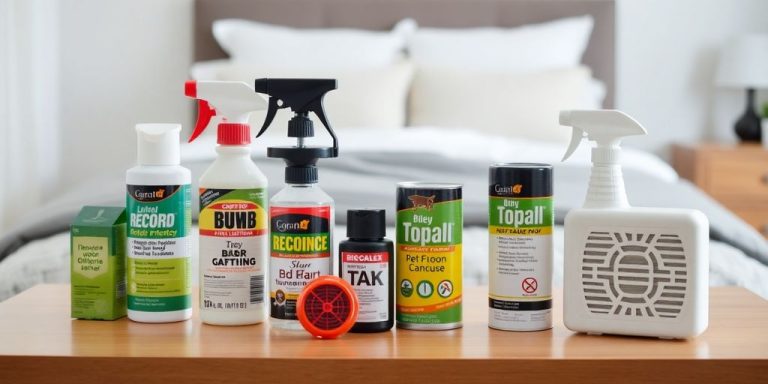Starting your own termite business can be a rewarding venture, but it requires careful planning and understanding of the industry. This guide will help you navigate through essential steps, from grasping the market to establishing your operations. Whether you’re a beginner or looking to expand your knowledge, this comprehensive guide will provide you with the insights you need to succeed in the termite business.
Key Takeaways
- Understand the demand for termite services in your area.
- Create a detailed business plan to outline your goals.
- Get the necessary training and certifications to operate legally.
- Invest in quality equipment and supplies for effective service.
- Focus on building strong relationships with customers for repeat business.
Understanding the Termite Business Landscape
Market Demand for Termite Services
The need for termite services is growing. Many homeowners and businesses are becoming more aware of the damage termites can cause. This increased awareness leads to a higher demand for pest control services. Here are some reasons why the market is expanding:
- Rising property values make homeowners more protective of their investments.
- Increased awareness of termite damage through media and education.
- Seasonal factors that lead to more termite activity.
Key Players in the Industry
In the termite business, several key players shape the market. These include:
- Pest control companies that offer specialized termite services.
- Real estate agents who often recommend pest inspections before sales.
- Homeowners who are proactive about pest management.
Regulatory Considerations
Starting a termite business means understanding the rules and regulations. Each state has its own laws regarding pest control. Here are some important points to consider:
- Obtain the necessary licenses and permits.
- Follow safety guidelines for using chemicals.
- Stay updated on changes in pest control regulations.
Understanding the termite business landscape is crucial for success. By knowing the market demand, key players, and regulations, you can build a strong foundation for your business.
Termite control is not just about extermination; it’s about prevention and education.
Building a Strong Business Foundation
Starting a termite business requires a solid base to ensure long-term success. Creating a strong foundation involves several key steps that will guide your operations and growth.
Creating a Business Plan
A well-thought-out business plan is essential. It should include:
- Executive Summary: A brief overview of your business.
- Market Analysis: Understanding your target customers and competitors.
- Financial Projections: Estimating your income and expenses.
Choosing the Right Business Structure
Selecting the right structure for your business is crucial. Here are some common options:
- Sole Proprietorship: Simple and easy to set up.
- Partnership: Sharing responsibilities and profits with others.
- LLC (Limited Liability Company): Protects your personal assets.
Securing Financing for Your Termite Business
To get your business off the ground, you may need funding. Consider these sources:
- Personal Savings: Using your own money.
- Bank Loans: Borrowing from a bank.
- Investors: Finding people who want to invest in your business.
A strong business foundation is the key to overcoming challenges and achieving success in the termite industry.
In summary, laying a solid groundwork through a comprehensive business plan, choosing the right structure, and securing necessary financing will set you on the path to success. Remember, planning is essential to navigate the complexities of the termite business effectively.
Understanding the market and your competition will also help you make informed decisions as you grow your business.
Highlight: The importance of cleanliness to deter rodents is crucial in pest control.
Acquiring Necessary Skills and Certifications
Training and Certification Programs
To succeed in the termite business, you need to gain the right skills and certifications. Completing a training program can help you understand pest control methods and safety practices. Here are some key points to consider:
- Look for programs accredited by recognized pest control organizations.
- Ensure the training covers both theory and practical applications.
- Consider online courses for flexibility.
Understanding Pest Control Regulations
Every state has its own rules about pest control. It’s important to know these regulations to operate legally. Here are some steps to follow:
- Research local laws regarding pest control.
- Obtain necessary licenses and permits.
- Stay updated on changes in regulations.
Continuing Education and Skill Development
The pest control industry is always changing. Ongoing education is crucial to stay ahead. Here are some ways to keep learning:
- Attend workshops and seminars.
- Join professional associations for networking.
- Read industry publications to learn about new techniques and products.
Staying informed and skilled is key to thriving in the termite business.
By focusing on these areas, you can build a strong foundation for your termite business and ensure you meet the needs of your customers effectively. Remember, knowledge is power in this industry!
Setting Up Your Termite Business Operations

Starting your termite business involves several key steps to ensure smooth operations. Establishing a solid foundation is crucial for long-term success. Here are the main areas to focus on:
Selecting a Business Location
- Choose a location that is accessible to your target market.
- Consider areas with high demand for pest control services.
- Ensure the location complies with local zoning laws.
Purchasing Equipment and Supplies
To effectively run your termite business, you will need:
- Termite detection tools
- Treatment chemicals and safety gear
- Transportation vehicles for service calls
| Equipment Type | Estimated Cost |
|---|---|
| Detection Tools | $500 |
| Treatment Chemicals | $1,000 |
| Vehicle Purchase | $20,000 |
Hiring and Training Staff
- Look for individuals with a passion for pest control.
- Provide training on safety and pest management techniques.
- Ensure staff are certified in pest control regulations.
Setting up your operations correctly can lead to a successful and sustainable business.
By focusing on these areas, you can create a strong operational base for your termite business, ensuring you meet customer needs effectively. Remember, customer satisfaction is key to building a loyal client base, as seen in successful companies like Flatline Pest Control, which emphasizes tailored pest management plans and integrity in service.
Developing Effective Marketing Strategies

Building a Brand Identity
Creating a strong brand is essential for your termite business. Your brand should reflect your values and the quality of your services. Here are some key points to consider:
- Choose a memorable name that resonates with your target audience.
- Design a professional logo that represents your business.
- Develop a consistent color scheme and style for all your marketing materials.
Utilizing Digital Marketing Channels
In today’s world, having an online presence is crucial. Here are some effective digital marketing strategies:
- Create a user-friendly website that showcases your services and contact information.
- Use social media platforms to engage with customers and share helpful tips about pest control.
- Consider online advertising to reach a wider audience.
Networking with Local Businesses
Building relationships with other local businesses can help you grow your customer base. Here are some ways to network effectively:
- Attend local business events and trade shows.
- Partner with real estate agents and home inspectors who can refer clients to you.
- Join local business organizations to connect with other entrepreneurs.
Remember, effective marketing is about building trust and providing value to your customers. By focusing on your brand, utilizing digital channels, and networking, you can create a strong presence in the termite business.
Ensuring Quality and Customer Satisfaction

Implementing Quality Control Measures
To keep your termite business thriving, it’s essential to have strong quality control measures in place. This ensures that your services meet customer expectations and industry standards. Here are some key steps to consider:
- Regular inspections of your work to ensure it meets quality standards.
- Training staff on best practices and safety protocols.
- Gathering feedback from customers to improve services.
Handling Customer Feedback and Complaints
Every business faces complaints, but how you handle them can make a big difference. Here are some tips:
- Listen actively to the customer’s concerns.
- Respond promptly to resolve issues.
- Follow up to ensure satisfaction after the issue is resolved.
Building Long-term Customer Relationships
Building strong relationships with your customers is crucial for repeat business. Here are some ways to foster these connections:
- Communicate regularly through newsletters or updates.
- Offer loyalty programs to reward repeat customers.
- Ask for referrals to grow your customer base.
Remember, customer satisfaction is key to your business’s success. Happy customers are more likely to recommend your services to others, helping you grow your business.
By focusing on quality and customer satisfaction, you can create a strong reputation in the termite industry. This will not only help you retain customers but also attract new ones, ensuring your business thrives in a competitive market. Quality service is what sets you apart from the rest.
Navigating Challenges in the Termite Business

Managing Seasonal Fluctuations
Running a termite business means dealing with seasonal changes. During certain times of the year, demand for services can drop significantly. To manage this:
- Plan ahead for slow seasons by saving profits.
- Offer special promotions during off-peak times to attract customers.
- Diversify your services to include other pest control options.
Dealing with Competition
The termite control market can be quite competitive. To stand out:
- Focus on quality service to build a good reputation.
- Use unique marketing strategies to reach potential customers.
- Network with local businesses to create partnerships.
Adapting to Industry Changes
The pest control industry is always evolving. Staying updated is crucial:
- Attend workshops and training sessions to learn about new techniques.
- Keep an eye on regulatory changes that may affect your business.
- Invest in modern equipment to improve efficiency.
Staying ahead in the termite business requires constant learning and adaptation. Embrace change to ensure your business thrives in a competitive market.
By understanding these challenges and preparing for them, you can build a successful termite business that stands the test of time. Focus on quality and customer satisfaction to create lasting relationships with your clients.
Conclusion
Starting your own termite business can be a rewarding journey. With the right knowledge, tools, and dedication, you can build a successful company that helps people protect their homes from pests. Remember to keep learning about the industry and stay updated on the latest methods and products. Building strong relationships with your customers is key, as trust is essential in this line of work. By following the steps outlined in this guide, you can turn your passion into a thriving business that makes a real difference in your community.
Frequently Asked Questions
What do I need to start a termite business?
To start a termite business, you will need a good business plan, some money to buy equipment, and training to learn how to handle termites safely.
How much money can I make in the termite business?
Your earnings in the termite business can vary. Many owners make a decent income, especially if they build a good reputation and have many clients.
Do I need a license to operate a termite business?
Yes, most places require you to have a license to run a termite business. This usually means you need to complete training and pass a test.
How can I find customers for my termite business?
You can find customers by advertising your services online, talking to local businesses, and asking satisfied customers to recommend you to others.
What are some common challenges in the termite business?
Some common challenges include dealing with busy seasons when many people need help, competing with other pest control companies, and keeping up with new rules and laws.
Is it important to keep learning in the termite business?
Yes, it’s very important! The pest control industry changes often, so taking courses and learning new techniques can help you stay successful.



